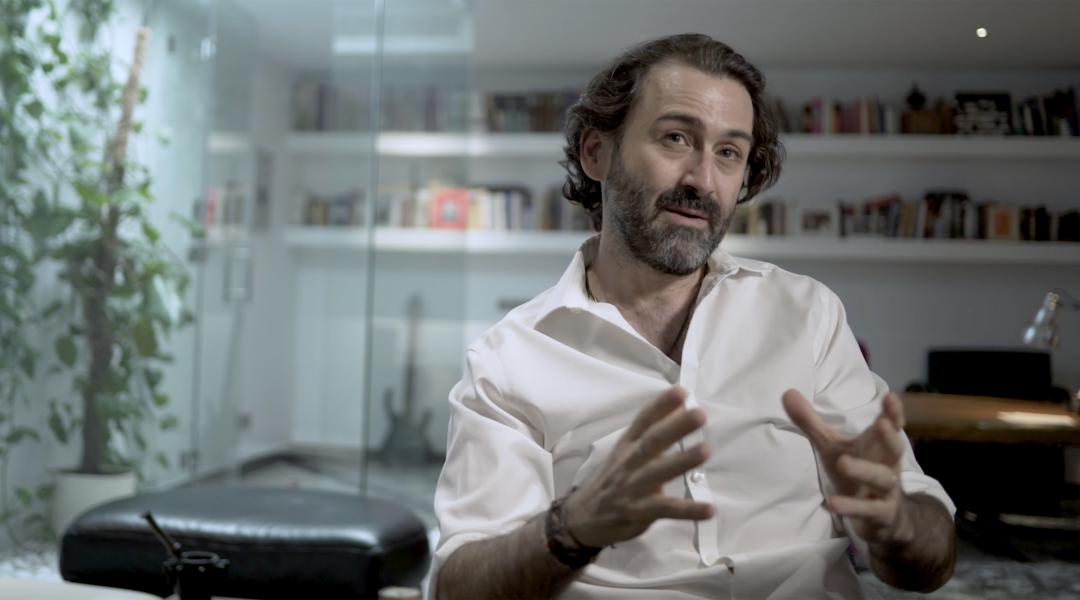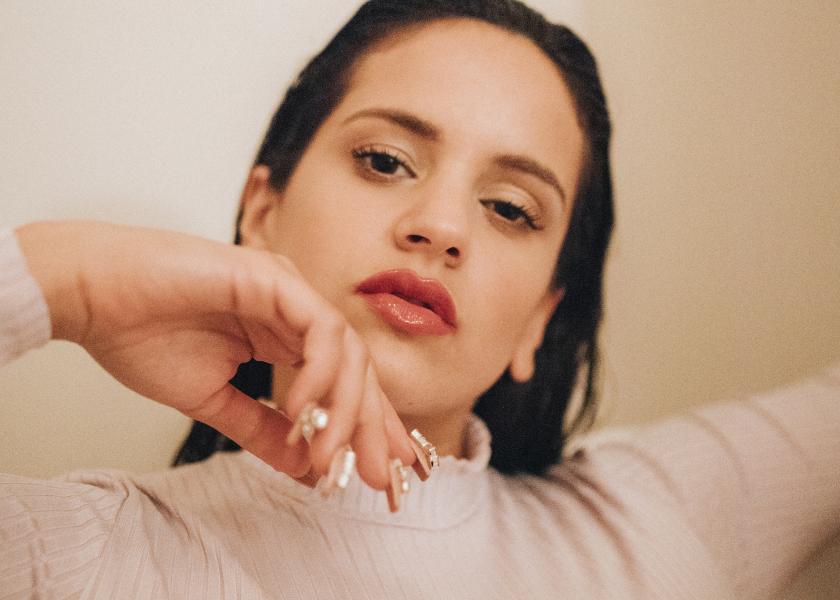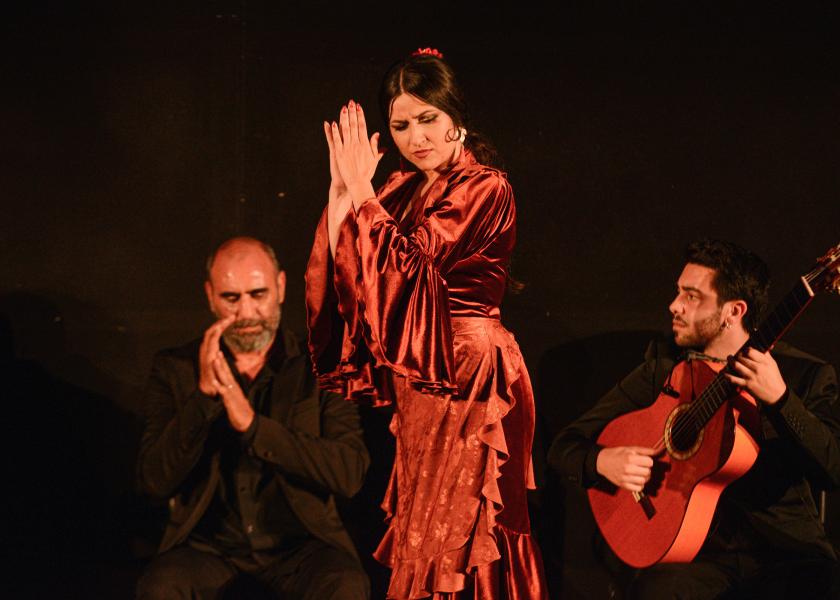Javier Limón
“Spain Is An Endless Source Of Talent”

A musician, a composer, a producer, a teacher, a communicator. Many skills coexist successfully in Javier Limón, but there is one that prevails over the rest—being a unifier of talent. His mission in life is to cross paths with artists from distant realities to create beauty. We talked with him to celebrate the twenty years of Casa Limón, his unstoppable production company, and to learn about his new projects. Limón is here to stay.
We meet Javier Limón (Madrid, 1973) in Madrid, in the area of charming low houses near the Manzanares River, where he lives. At home, his favorite corner is decorated with photos brimming with life and talent, with Bebo Valdés, Sarah Vaughan, and Nat King Cole, also with the great Paco de Lucía and with his friend Alejandro Sanz. In front of us there are ten Grammy awards, countless books and vinyl records, many of them flamenco albums. It's time to meet a man born to create.
Is Spain a country of talent, Javier?
Spain is an endless source of talent. Being a land of passage, we carry in us the mixture and the movement that generates talent. Talent comes from mixing and moving. Spain is very much alive, and it moves a lot, and that breeds talent. What we need to do is put some order in the music industry. I miss more proposals to help that talent emerge and fly for the world to know.
Twenty years of Casa Limón. Are you proud?
I started as a composer and ended up setting up my own recording studio because the existing ones back then couldn’t help me get the sound I was looking for. The same thing happened with record labels. There was a musical scene that had no name, no space, no place. I founded Casa Limón to accommodate that movement, and it eventually became a record label, an audiovisual production company and artist representation agency. Casa Limón supports quality music and looks for new talents, focusing on roots music from around the world.
What did you learned as a music teacher at Berklee?
One day you realize that all the music we listen to, 100 percent of it, is basically a blend of African music with American or colonial music—jazz, flamenco, hip hop, pop, rock, Cuban music... everything is there. Then some other day your realize that in India, in Turkey and throughout Asia there is some ancient music that has no harmony, no chords, that has twenty-four notes whereas we have twelve, that between Do and sustained C there is another note. And that's when you understand you know nothing, that C major doesn't exist. I don't know what music on Mars is like and I hope I never know.
“Great artists are all good, humble people. Always. They are great because they are aware they don’t know everything”
What are great artists like?
It very difficult to find a good musician, a really good one, that isn’t humble. Music is a very complex and immeasurable art. Great artists are all good, humble people. Always. Bebo Valdés, Enrique Morente, Paco de Lucía, Caetano Veloso, Chucho Valdés... They are great because they are aware they don’t know everything.
When did you become a successful producer?
At one point, I found myself with four albums to be released at the same time: Andrés Calamaro, Enrique Morente, Paco de Lucía, and Lágrimas Negras. All four at once. I once had three albums in the Top Ten at the same time. That was January 2004. Then came the Grammys and everything else. I realised that, without being an exceptional guy nor especially skilled at singing or playing an instrument, there was a place for me in the music industry.
Who is the most important artist you’ve ever worked with?
The most important artist I’ve ever worked with and will ever work with is Paco de Lucía. He’s the best guitarist in history. There is no guitarist in the world, and I say guitar because it’s the most played instrument on the planet, who hasn’t been directly or indirectly influenced by him. I talked about this with Keith Richards of the Rolling Stones, with Eric Clapton, with Pat Metheny... Paco is like Picasso. The thing is, he’s still our contemporary and we haven’t yet realized he’s the best.
Are you happy with the project ‘La guitarra vuela’ (The guitar flies) that you created for Iberia?
I think La guitarra vuela is a modern-day project because it’s eminently visual, and music today, whether we like it or not, has to be visual. The story is very simple. Paco de Lucía's guitar is sad because nobody is playing it, so it decides to fly around the world to find friends of Paco who want to play it. Caetano Veloso, Alejandro Sanz, Carlinhos Brown, and Luis Salinas, among others, play Paco’s guitar and talk to it, and then we end up talking about Paco. It’s an original project, and in my opinion the most beautiful tribute to Paco since he left us.
How do you see yourself when you get old?
I see myself with my partner, Eva, who is also my manager, my producer and the one who bears with me. We were born on the same day of the same year. We have been together for 27 years. I see myself with her but not in one place. If I could, I’d live for short periods in different cities and in the countryside. Traveling today is very easy. Moving around should be encouraged. I think living in different places is morally, ethically and spiritually very healthy. What is good here is bad somewhere else, and vice versa. Travelling is very healthy. As an old man I see myself travelling, if I can.
"Paco de Lucía is like Picasso. The thing is, he’s still our contemporary and we haven’t yet realized he’s the best"



